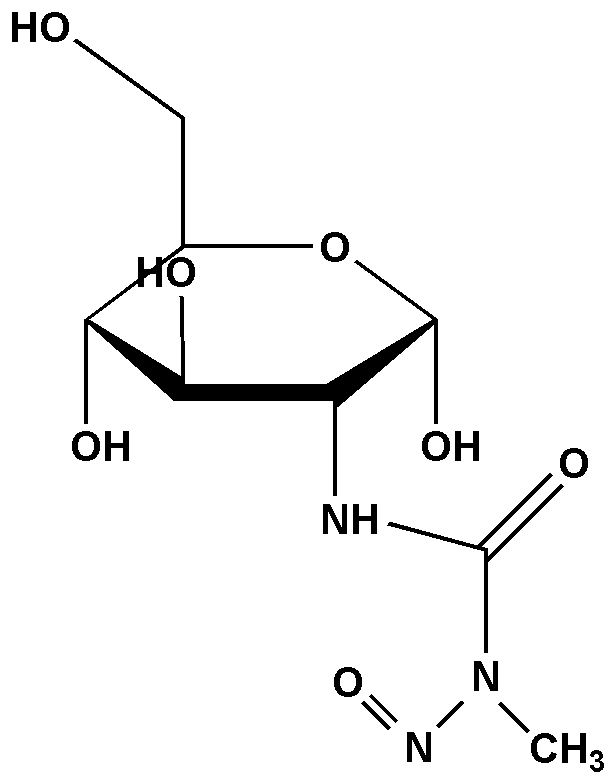Streptozocin
Product description
Streptozocin (STZ) is an antibiotic produced by Streptomyces Aureobasidium pullulans. It has anti-tumor effects and is often used to treat pancreatic cancer. At the same time, STZ can selectively destroy pancreatic beta cells in certain species of animals and induce diabetes. It can be used for modeling research on diabetes models. Rats and mice are generally used to create animal models.
The preparation of type Ⅰ diabetes and type Ⅱ diabetes animal models is related to the dose of STZ injection: when a high dose is injected, it can directly cause extensive destruction of pancreatic islet β cells, which can cause a type Ⅰ diabetes model; when a smaller amount of STZ is injected, it only destroys the function of a part of the pancreatic islet β cells, causing peripheral tissues to be insensitive to insulin. At the same time, high-calorie feed is given. The combination of the two can induce an animal model with pathological and physiological changes close to human type Ⅱ diabetes. Generally speaking, high doses of STZ can induce type I diabetes models, while low doses of STZ plus high-fat and high-sugar feed can induce type II diabetes models.
In addition, STZ has also been widely studied in anti-leukemia, DNA methylation, anti-nephritis and other aspects.
Specifications
|
English Synonym |
Streptozotocin |
|
CAS NO. |
18883-66-4 |
|
Formula |
C8H15N3O7 |
|
Molecular Weight |
265.22 |
|
Appearance |
White or light yellow powder |
|
Purity |
≥98% |
|
Solubility |
Soluble in water, lower alcohols, ketones, etc. |
|
Structure |
|
Components
|
Components No. |
C331605E |
C331605S |
C331605M |
|
Size |
100 mg |
500 mg |
1 g |
Storage
Ice pack shipping. -15℃ ~-25℃ storage, away from moisture and light, valid for 2 years.
Catalog No.:*
Name*
phone Number:*
Lot:*
Email*
Country:*
Company/Institute:*
Recommended products
Related articles


